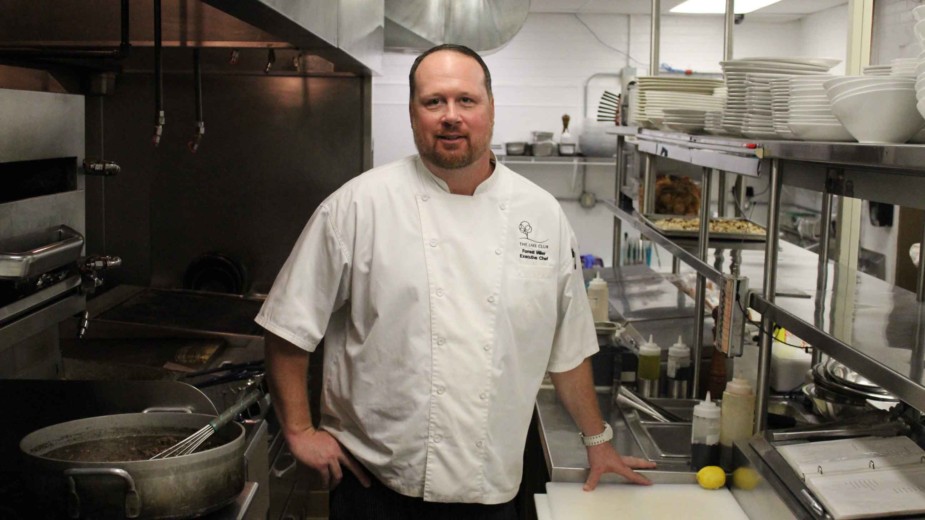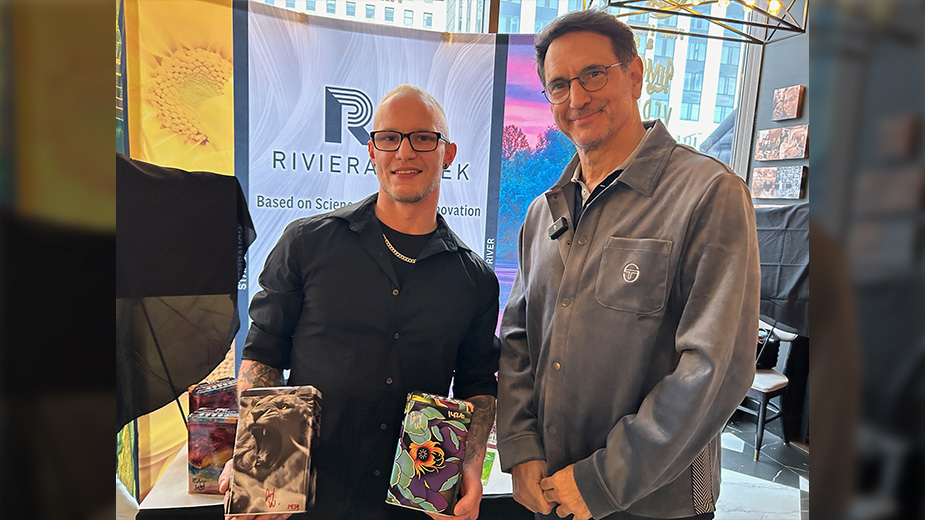With a 24/7 Passion, No Days Off for Chefs
It isn’t difficult for executive chef at the Lake Club to pin down when he knew he wanted to be a chef.
Forrest Miller was nearly 13 when he saw an infomercial. “It was for a spice rack and a cookbook by Paul Prudhomme. I asked my parents for it for my birthday,” he says. “They got me a bicycle.”
It was his mother, he says, who saw how much he wanted the spice rack and cookbook. When Christmas arrived, the boxed set sat beneath the tree. His mother, Miller continues, was instrumental in developing his tastes. For Super Bowl parties, she avoided standbys such as chips and dip and one year set out smoked oysters over a cream cheese spread.
“She took me to get sushi when I was like nine, way before it was trendy,” Miller says. “She was the one who led me to believe that you have to keep your eyes open to something different, even if you don’t like it.”
For most chefs, the passion for cooking starts at home at a young age. Sedar Dede, owner of Café 422 in Warren, recalls watching his mother in the kitchen. “She makes a phenomenal lentil soup,” he says.
“She always enjoys cooking and I was always in the kitchen as an observer,” he says. “I always enjoyed that and I still do if I have a day off.”
At the Blue Wolf Tavern in Boardman, chef and owner Joe Rzonsa declares that cooking is in his blood. On his father’s side of the family, his grandfather owned and operated several restaurants and bars around Reading, Pa., over his lifetime. Places where his grandfather once worked were common stops on trips, Rzonsa says.
Meanwhile on the other side of his family, his maternal grandparents operated Farm Good Meats, a meatpacking plant in Columbiana where he often observed operations at the slaughterhouse and packing center.
“That definitely, on the sourcing side of things, was instrumental,” he says.
Also crucial, he continues, is being from the Mahoning Valley.
“I’ve always loved to eat and being from Youngstown, Ohio, that’s an easy thing to do,” Rzonsa says, noting that the area has more family-owned restaurants than many areas he’s been to. “That’s really what got me interested. There are so many different ethnicities and food.”
There’s no shortage of places to eat in the Youngstown-Warren area, Dede and Miller agree, and that makes chefs’ lives outside of their kitchens a bit easier. With so many culinary influences in the area, chefs can choose just about any style of food they want when they have a day off.
“Sometimes when you go [to other places], you find out how fortunate we are. We have the food that you can’t compare to other cities,” Dede says. “There are great products. This area is special.”
For the chefs, going out to eat at restaurants other than their own is first and foremost a recreational activity. When they’re outside their own kitchens, they often withhold their criticisms, saving them for only the worst offenses.
“You’d have to do something really egregious for me to complain, like dirty dishes or way overcooked proteins,” the Lake Club’s Miller says. “When I’m out, I just want a nice experience.”
What the chefs are much more eager to discuss is cooking at home. They don’t do it as much as they’d like, they admit, but it’s something they look forward to.
“My wife loves when I cook at home, which I can’t do much of anymore, and she’ll tell you the same,” Rzonsa says. “When I was younger, I did like to mess around and see what I’d create for my parents.”
Today, most of the dishes he makes at home are seafood, although his favorite is creating veal osso buco, a crosscut of veal shank braised with tomato sauce and served with risotto.
“It’s a very seasonal dish. You won’t see it in the middle of July,” he says. “It’s a hearty, warming, filling dish with rich flavors and an almost buttery finish.”
Miller, meanwhile, notes that because the Lake Club is a golfing destination, it’s at its busiest during summer, which keeps him from his favorite way to cook: grilling.
“When I do get days off, I like to cook out with my friends and grill meat or smoke ribs and watch whatever’s on TV,” he says. “At home, I don’t do anything fancy.”
For Café 422’s Dede, there’s no dish in particular that he likes to make at home. What he looks forward to is slowing down. He doesn’t want to feel as though he’s still preparing meals for customers, although his daughters can be demanding eaters.
“I try to do it a bit different at home. I make it if that’s what they ask for,” he says. “I like making lamb, anything with the bone in it. It has the most flavor and you can create a lot with it. I prefer doing some slow cooking rather than spitting out fast orders.”
When they do take vacations, the chefs say they often plan around what restaurants they can get into outside the Mahoning Valley.
Some of the best cities for food, Dede says, are New York, Chicago and San Francisco, a sentiment the other chefs echo.
Often, the trips are more business than pleasure because the chefs look at what they can bring back, giving dishes more scrutiny than when they’re in the Valley.
“We plan our vacations to Chicago around what restaurants we can get reservations for,” Rzonsa says.
Part of the challenge with visiting Zagat- and Michelin-rated restaurants, Miller adds, is figuring out how to convert some of their dishes to what people in the Valley want.
“Those places don’t really translate to Youngstown. They’d probably be really popular for six weeks and no one would go again because it’s so expensive and so different,” he says. “That’s not how people eat in this area.”
Over the years, chefs have gained many avenues to improve outside their kitchens. When these chefs started their careers, the Food Network and Pinterest were yet to be born. Today, recipes can be shared, improved and re-created with ease through countless TV shows and websites.
“There are more ideas than ever. And it’s not always fundamental- or technique-driven,” Miller says. “Home cooks are experimenting and you see what they’re doing and think, ‘That’s pretty cool.’ I think [professionals] can be so technique-driven that we don’t think about mixing X with Y like people at home do.”
Ultimately, what chefs create – both in their restaurants and at home – comes down to taste.
“People in this area hold high standards and rightfully so. … They expect great creations, fantastic value and something to take home with them most of the time,” Rzonsa says. “You have to be the best of the best and you can’t let your guard down.”
Copyright 2024 The Business Journal, Youngstown, Ohio.



